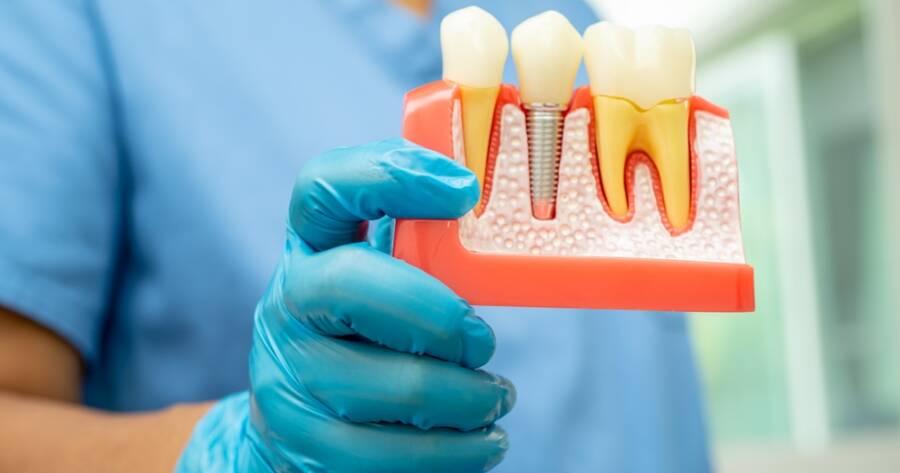Tooth loss is a common issue among seniors, often caused by gum disease, decay, or bone loss. While traditional solutions like dentures and bridges have been widely used, dental implants offer a more durable, natural-looking, and comfortable alternative. Unlike dentures, which may shift or cause discomfort, implants function like real teeth, improving chewing ability, speech, and overall oral health.
What Are Dental Implants?
Dental implants are a permanent tooth replacement solution that mimic the function and appearance of natural teeth. They consist of three key components:
- Implant Post – A titanium screw surgically placed into the jawbone, acting as the new tooth’s root.
- Abutment – A connector that links the implant post to the artificial tooth.
- Crown – A custom-made artificial tooth designed to match the surrounding natural teeth.
Since the implant fuses with the jawbone (a process called osseointegration), it provides long-term stability and durability, unlike removable dentures.
Benefits of Dental Implants for Seniors
1. Long-Term Durability
Dental implants are designed to last a lifetime with proper care, unlike dentures or bridges, which may need frequent replacements.
2. Improved Chewing and Nutrition
Unlike dentures, which can limit food choices, implants allow seniors to eat a wider variety of foods, leading to better nutrition and overall health.
3. Prevents Bone Loss
When teeth are missing, the jawbone can begin to deteriorate over time. Dental implants stimulate bone growth and help maintain facial structure, preventing the sunken look often associated with missing teeth.
4. Enhances Speech and Comfort
Dentures can slip, affecting speech and causing discomfort. Implants stay securely in place, helping seniors speak clearly and confidently without worry.
5. Low Maintenance
Dental implants require the same care as natural teeth, including brushing, flossing, and routine dental check-ups. Unlike dentures, there is no need for adhesives or special soaking solutions.
The Dental Implant Procedure for Seniors
1. Consultation and Evaluation
A dentist will assess the patient’s oral health, jawbone density, and medical history to determine if implants are a suitable option. Some seniors may need a bone graft if they have experienced significant bone loss in the jaw.
2. Implant Placement Surgery
During this phase, the dentist surgically places the titanium post into the jawbone. Over the next 3-6 months, the bone naturally fuses with the implant to create a stable foundation.
3. Abutment and Crown Placement
Once the implant has integrated with the bone, an abutment is attached to the post, followed by the placement of a custom-made crown that matches the natural teeth.
4. Recovery and Aftercare
Mild discomfort is common for a few days after surgery, but most patients recover quickly and can resume normal activities within a few days.
Are Dental Implants Right for You?
Dental implants are ideal for seniors who:
- Have good overall health and sufficient jawbone density.
- Are non-smokers, as smoking can slow the healing process.
- Want a long-term alternative to dentures with minimal maintenance.
However, seniors with severe osteoporosis, diabetes, or heart conditions should consult a dentist to determine whether they are suitable candidates.
Insurance and Financing Options
- Medicare does not typically cover implants, but some Medicare Advantage plans may provide partial coverage.
- Private dental insurance may offer some reimbursement for implant procedures.
- Many dental offices offer financing plans or payment options to help make implants more affordable.
A Lasting Solution for Senior Dental Health
Dental implants provide seniors with a permanent, comfortable, and natural-looking solution for missing teeth. While they require a higher initial investment, the long-term benefits in terms of durability, function, and oral health make them a valuable choice. Consulting with a dental professional can help determine whether implants are the right option based on individual health and financial considerations.





